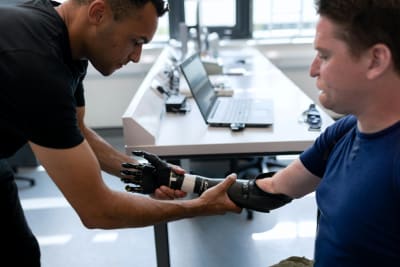While you can, technically, become an engineer without an engineering degree, you’ll be making your life a lot harder. Plus, most people won’t bother to hire somebody without a degree in engineering. So, the big question is – how long will it take to get an engineering degree? Is it a fast process, or will you commit years to it? Let’s take a look!
We’ll be looking at things mostly from a US perspective here. Remember that some of the processes will be much shorter outside the US. There might also be small differences depending on the college you study at and the course you’re following. However, these differences are rare.
How Long Does it Take to Become an Engineer?
We’ll tackle this in more depth throughout this page. However, we want to give you a quick overview of how long each aspect of an engineer’s degree will take:
- Bachelor’s degree: up to 4 years in the US. Three years in most other countries.
- Master’s Degree: 1-2 years.
- Doctorate: 3-6 years.
In most cases, a bachelor’s degree and a master’s degree are all a person will need to access most engineering jobs. So, expect it to take between 3-6 years to have enough qualifications to get the job that you want.
Bachelor’s Degree
This is your basic college-level education. A degree in engineering can be used to obtain a job, and most people grab a bachelor’s degree and head right into work. You won’t necessarily score the best jobs when you’ve completed a bachelor’s degree, but you can get work, depending on what your degree specializes in.
A bachelor’s degree in the US takes four years, while in other countries, it takes around three years. This is because the US program is a bit more spread out, while other countries compress everything, helping people get into the working environment a little quicker.
When you study for a bachelor’s degree in engineering, the focus will be on basic principles, e.g., math, physics, and chemistry. You’ll then expand into the key engineering study areas (i.e., more applied physics, particularly in design and materials).
Most bachelor’s degrees will be general engineering degrees. This means that you’ll only learn the basics of engineering. You may have some specialized courses that focus a little on key types of engineering, e.g., civil, electrical, and computer engineering. However, these will not cover everything you need to know.
That being said, there are some specialized engineering degrees out there. These specialized engineering degrees take the same time as a typical engineering degree but will focus more on one subject. For example, if you had plans to become a biomedical engineer, then the degree would focus much harder on biology and other aspects of biomedical engineering.
As we said – some people can graduate at this point and find positions as an engineers. However, jobs won’t be that common since people rarely specialize when studying for a bachelor’s degree in engineering. If you do get a job, it’ll be at the lower end of the pay spectrum, too.
This means that you’ll then need to move on to one of the other degree types. Although, some of these degrees can be completed while gaining a part-time job in the engineering sector.
Master’s Degrees
To get a decent start in engineering, you’ll need a master’s degree. These can only be completed after a bachelor’s degree. It will take between 1 and 2 years, depending on the type of master’s degree and the intensity of the study.
When completing a master’s degree, you’ll tap into a specific field. This is where most people opt to specialize. So, for example, if you wish to get into aerospace engineering, then you’d complete a master’s degree in that. If you wish to get into biomedical engineering, your master’s degree would focus on that.
These courses are fast-paced, and you’ll be expected to use most of the knowledge gained during the engineering bachelor’s degree.
While studying for a master’s requires extensive education, most of a student’s time will be spent compiling their thesis.
After obtaining a master’s degree, most people enter the workforce without further education. You should have no issues finding work in your selected field now. Any further education can be undertaken at a later point.
Doctorate (Ph.D.)
Most engineers will not need to get to this stage. However, if you see an engineer with the Dr. before their name, this means that they’ve completed their Doctorate.
When studying for a Ph.D., there won’t be any real further education. Instead, a Ph.D. is research-specific. You’ll be spending a lot of time researching key concepts in engineering. As a Ph.D. student, you’ll be expected to come up with unique research that helps to further the engineering field. This means you may develop a new take on an established subject or invent something yourself.
A Ph.D. won’t be undertaken alone. Instead, you’ll be watched over by an advisor who can give you limited assistance in gaining your Ph.D., but they can’t help you to write it.
At the culmination of your Ph.D., you’ll have completed a hefty research paper that must then be defended in front of experienced engineers, and this is often the toughest part of the process.
If you’ve completed a Ph.D., you have the right to use the Dr. in front of your name. You’ll also be looked upon with great praise in the engineering community. You’ll be seen at the top of your field and have no issues getting your desired job. Well, assuming that it is within the remit of your Ph.D.
The process is lengthy, though. You’ll be committed for between 3 and 6 years. How long will depend on the research you’ve chosen to undertake? It is almost a full-time commitment, too, which means that you might be unable to hold down a full-time engineering job.
If somebody becomes a Doctor of Engineering, they will likely do it during the latter stages of their career. They’ll work as an engineer for a bit and then get their doctorate. However, a doctorate isn’t necessary outside of a few engineering types. It is just to gain a bit of kudos and command a higher salary.
Licensing
Depending on your country and specialty area, you might need to be licensed before you can work as an engineer. In most cases, you can complete the licensing requirements while at college. Your tutors will advise you if this is the case.
Can You Study for an Engineering Degree Part-Time?
You can. The process will take a lot longer, though.
If you wish to study for a part-time engineering degree, expect everything to take twice as long.
On the plus side, studying for a part-time degree means you’ll find getting experience in an engineering-related field much easier. This could make obtaining a job easier once you’ve left college since engineering is about gaining experience. Companies don’t want people fresh out of college. They want those who have proven themselves and can immediately jump into the job.
Final Thoughts
At a minimum, a bachelor’s degree will take 3-4 years. However, if you want the best chance of securing a well-paid job in engineering, you’ll need to add a further 1-2 years for a master’s degree. Becoming an engineer isn’t a fast process, but it pays well, even when entering the profession.





